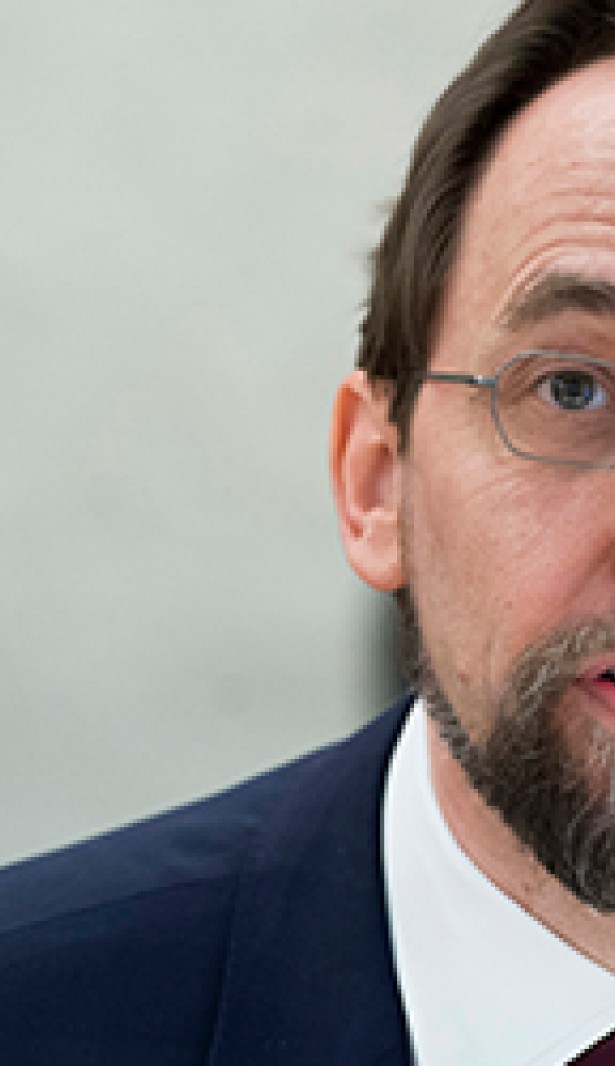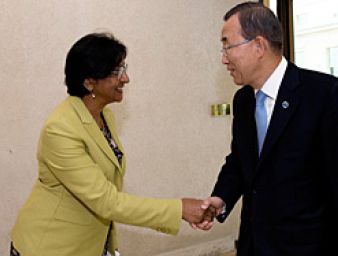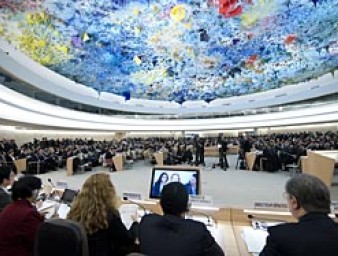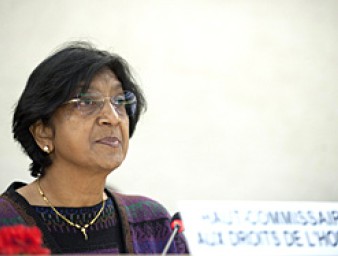UN Human Rights Chief Zeid presents his annual report to the Human Rights Council
10 March 2016
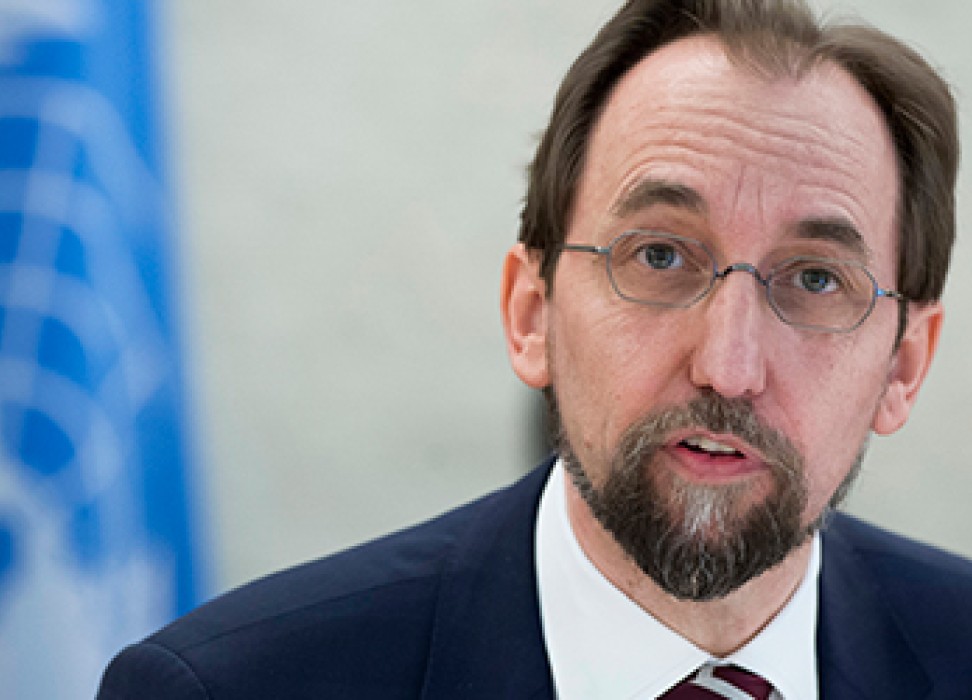
Presenting his annual report to the Human Rights Council, UN Human Rights Chief Zeid said he was alarmed by the ever growing number of threats to the global democratic space.
The arrests, harassment and prosecution of civil society actors noted in 2015 are in contradiction with the ratifications of UN human rights treaties and agreements which should represent States’ commitment to protect human rights. Without real freedoms on the ground, those ratifications risk becoming no more than “human rights window-dressing,” said Zeid who stressed that “human rights obligations should not be a "tick-the-box" exercise designed only to boost a country's international image.”
The situation of migrants and refugees reaching the shores of Europe was "dramatic", he said. He cautioned the EU about its draft arrangement with Turkey, announced earlier this week, which he said could potentially lead to "collective and arbitrary expulsions" and restriction of border crossings to people of specific nationalities, in contradiction with international and European law.
More than 400 people have died last year fleeing conflict and deprivation for Europe, while many more continue to perish in the Middle East, Zeid pointed out, citing the situations in Syria, Yemen and Iraq.
In North Africa, recent reports issued by the UN Human Rights Office detail the human rights restrictions and violations that occur in total impunity in Libya and South Sudan.
Further south, Burkina Faso and the Central African Republic have been an example for democracy on the African continent by conducting peaceful and fair elections; while Burundi and the Democratic Republic of Congo continue to jeopardize a fragile stability close to collapse under the weight of human rights restrictions imposed on their citizens.
The Zika virus crisis in Latin America is proving to not only be a public health emergency but also a challenge for the sexual and reproductive health rights of women in the region, as well as for the care of children born with Zika-related disabilities, Zeid pointed out.
“The apparent link between Zika and incidence of microcephaly in new-borns has led several Governments to recommend that women in affected zones refrain from pregnancy,” he said. “However, in many countries, there are high rates of sexual violence, and access to sexual and reproductive health services is severely restricted – particularly to the poor.”
In the year of the launch of the International Decade for People of African Descent, some 300 African Americans were killed by police; and of the 2,000 killed by the police in Brazil, a disproportionate number were youths of African descent.
On the other side of the globe, in Nepal, little progress had been achieved in addressing the root causes of a conflict that finally ended after a decade. “Entrenched ethnic and caste discrimination, unequal access to economic resources, extreme poverty and pervasive impunity. Unless these burning current issues, and past violations, are properly addressed, I fear that the country will continue to be at risk of further unrest, and even a new conflict,” Zeid warned. He added that this was an important lesson “for Sri Lanka, which is on its own journey towards accountability, reconciliation and durable peace.”
Further, voices critical of the Government in China and Malaysia continue to be muzzled. “In Malaysia, democratic space continues to be limited, with the Government applying "sedition" and other charges to an ever-widening circle of journalists, human rights defenders, political opponents and critical voices,” Zeid said, also indicating that he had made known his concerns over China’s arrests of lawyers and other activists.
Zeid was appalled by the continuing allegations of sexual exploitation and abuse of children by UN peacekeepers in the Central African Republic.
“Only the Member States can act to end impunity for criminal offences, including sexual abuse, that have been committed by their nationals who work for the UN. Only Member States can conduct criminal investigations, and prosecute,” he stressed.
Finally, Zeid mentioned the financial situation of his Office which he hopes to restructure to bring it closer to the ground by creating new regional hubs. The UN Human Rights Office relies heavily on extra-budgetary donations by States. To respond positively to the assistance requests it receives, the UN Human Rights Office would need 217 million US dollars. However, its predictions on what it would in fact receive are at 130 million.
“The gap between those two numbers represents people that we cannot help. Field offices that we cannot open. Facts that we cannot establish, and victims that we cannot assist or represent,” he said.
10 March 2016
